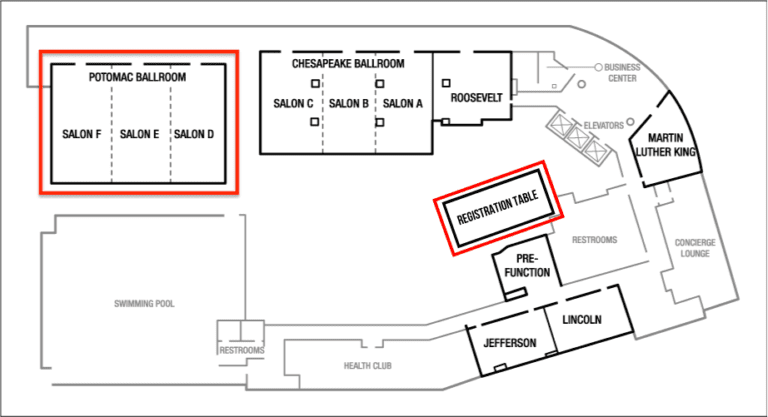
FPF Student Privacy Train-the-Trainer Program
February Kickoff Workshop
February 18-19, 2020
We are delighted that you will be joining us as part of the inaugural cohort of the FPF Student Privacy Train-the-Trainer Program! You can find more information on the agenda, transportation, and accommodations for the February workshop below. Please check back regularly for updates and do not hesitate to contact us at ttt@fpf.org if you have any questions.
Reimbursement Process
Send an email to travel@fpf.org with the following documents by March 21st. Please use “Student Privacy Train-the-Trainer Kickoff Workshop – Feb 2020 – Travel Reimbursement Request” as the subject line.
CLE Materials
Per CLE requirements, below are the slides and materials from the kickoff workshop. Please let us know if you would like a hard copy of the materials.
Agenda
Tuesday, February 18, 2020
Time
8:00 – 9:00 AM
9:00 – 10:00 AM
10:00 – 10:30 AM
10:30 – 10:45 AM
10:45 – 11:35 AM
11:35 – 12:20 PM
12:20 – 1:05 PM
1:05 – 2:00 PM
2:00 – 2:15 PM
2:15 – 3:00 PM
3:00 – 3:45 PM
3:45 – 4:00 PM
4:00 – 4:30 PM
Session
Breakfast & Registration
Introductions
Keynote
Break
Panel: Student Privacy Laws*
Activity: Case Study I*
Lunch
Activity: Online Presence*
Break
Panel: Parent and Advocate Perspectives
Activity: Firestarter Discussion*
Activity: Addressing Privacy Concerns
Wrap Up
Wednesday, February 19, 2020
Time
8:00 – 9:00 AM
9:00 – 9:30 AM
9:30 – 10:00 AM
10:00 – 10:30 AM
10:30 – 10:45 AM
10:45 – 11:35 AM
11:35 – 12:20 PM
12:20 – 1:05 PM
1:05 – 1:30 PM
1:30 – 2:10 PM
2:10 – 2:25 PM
2:25 – 3:10 PM
3:10 – 3:25 PM
3:25 – 3:35 PM
Session
Breakfast
Activity: Defining Why
Presentation: Privacy Landscape
Activity: Privacy Landscape in My Backyard
Break
Activity: Case Study II*
Panel: Culture of Privacy
Lunch
Activity: Essentials for Creating a Culture of Privacy
Activity: Case Study III*
Break
Presentation: Engaging Adult Learners
Activity: Application of Adult Learning Constructs
Wrap Up & Concluding Remarks
Speakers
Keynote Speaker
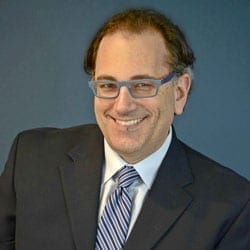
Jules Polonetsky serves as CEO of the Future of Privacy Forum, a Washington, D.C.-based non-profit organization that serves as a catalyst for privacy leadership and scholarship, advancing principled data practices in support of emerging technologies. FPF is supported by the chief privacy officers of more than 175 leading companies, several foundations, as well as by an advisory board comprised of the country’s leading academics and advocates. FPF’s current projects focus on Big Data, Mobile, Location, Apps, the Internet of Things, Wearables, De-Identification, Connected Cars, and Student Privacy.
Jules’s previous roles have included serving as Chief Privacy Officer at AOL and before that at DoubleClick, as Consumer Affairs Commissioner for New York City, as an elected New York State Legislator and as a congressional staffer, and as an attorney.
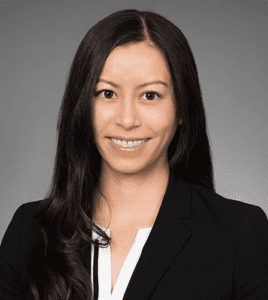 Lori Chiu is a senior associate in Fagen Friedman & Fulfrost’s (F3) Oakland office and co-chair of the firm’s eMatters practice group. Ms. Chiu provides general counsel and legal guidance to public agencies and corporate clients in a variety of areas, including data privacy and cybersecurity, and general business and facilities related matters. As co-chair of the firm’s eMatters practice group, Ms. Chiu regularly represents clients in technology transactions, including negotiation of software and SaaS licensing agreements. She counsels clients on compliance with federal and state privacy laws, development of privacy policies, cybersecurity incident response, and data sharing. She is frequently called on to deliver professional development training to school district administrators and employees regarding data privacy, electronic records management, school safety, and responsible use of technology. She often presents at professional conferences on topics related to privacy and technology in education.
Lori Chiu is a senior associate in Fagen Friedman & Fulfrost’s (F3) Oakland office and co-chair of the firm’s eMatters practice group. Ms. Chiu provides general counsel and legal guidance to public agencies and corporate clients in a variety of areas, including data privacy and cybersecurity, and general business and facilities related matters. As co-chair of the firm’s eMatters practice group, Ms. Chiu regularly represents clients in technology transactions, including negotiation of software and SaaS licensing agreements. She counsels clients on compliance with federal and state privacy laws, development of privacy policies, cybersecurity incident response, and data sharing. She is frequently called on to deliver professional development training to school district administrators and employees regarding data privacy, electronic records management, school safety, and responsible use of technology. She often presents at professional conferences on topics related to privacy and technology in education.
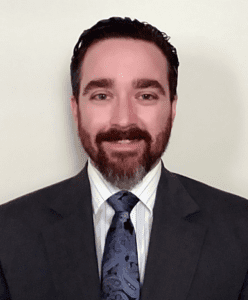 Sean Cottrell is an expert on data privacy issues related to integrated data systems that contain educational data. He provides technical assistance to states and education stakeholders as a member of the Statewide Longitudinal Data Systems (SLDS) grant program State Support Team (SST) as well as the Privacy Technical Assistance Center (PTAC). In his work, he has provided guidance and direction to states seeking to enhance their use of educational data in accordance with various federal and state privacy laws. Mr. Cottrell addresses issues such as stakeholder engagement, sustainability, data governance, system design, transparency, and research and evaluation data use.
Sean Cottrell is an expert on data privacy issues related to integrated data systems that contain educational data. He provides technical assistance to states and education stakeholders as a member of the Statewide Longitudinal Data Systems (SLDS) grant program State Support Team (SST) as well as the Privacy Technical Assistance Center (PTAC). In his work, he has provided guidance and direction to states seeking to enhance their use of educational data in accordance with various federal and state privacy laws. Mr. Cottrell addresses issues such as stakeholder engagement, sustainability, data governance, system design, transparency, and research and evaluation data use.
Previously, Mr. Cottrell served as the data governance coordinator and privacy officer for the Wisconsin Department of Public Instruction, and the interagency governance lead for Wisconsin’s Early Childhood Integrated Data System (WI ECIDS). In this role, he implemented policy, standardized and streamlined data sharing practices, and created a culture of responsible data use.
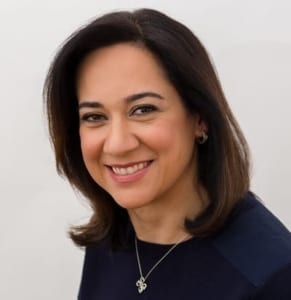 Olga Garcia-Kaplan is a student data privacy advocate and parent of three school-age children. Olga is a member and parent liaison for the Special Education Advisory Council in her children’s school district. She blogs on student privacy from a parent perspective advocating for the responsible use of student data. She previously served as a member of the School Leadership Team representing families of children with special needs and as a member of the Testing Task Force, a group of parents and teachers promoting community-wide dialogue on the impacts of federal, state, and NYC Department of Ed policies in the daily life of students and teachers. Olga has over 18 years of experience in the financial services industry managing compliance and regulatory requirements working on diverse projects from IPO launches, M&A projects, mutual funds, and proxy related transactions.
Olga Garcia-Kaplan is a student data privacy advocate and parent of three school-age children. Olga is a member and parent liaison for the Special Education Advisory Council in her children’s school district. She blogs on student privacy from a parent perspective advocating for the responsible use of student data. She previously served as a member of the School Leadership Team representing families of children with special needs and as a member of the Testing Task Force, a group of parents and teachers promoting community-wide dialogue on the impacts of federal, state, and NYC Department of Ed policies in the daily life of students and teachers. Olga has over 18 years of experience in the financial services industry managing compliance and regulatory requirements working on diverse projects from IPO launches, M&A projects, mutual funds, and proxy related transactions.
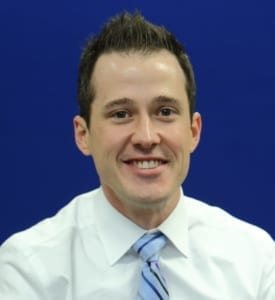 Ray Girdler currently serves as the Director of Data Use & Privacy for the Arkansas Department of Education (ADE). Over the years, he has served in multiple roles at the school and district levels. At ADE, Mr. Girdler’s team provides direct support to schools and districts for multiple data systems, data privacy guidance, and other technology initiatives.
Ray Girdler currently serves as the Director of Data Use & Privacy for the Arkansas Department of Education (ADE). Over the years, he has served in multiple roles at the school and district levels. At ADE, Mr. Girdler’s team provides direct support to schools and districts for multiple data systems, data privacy guidance, and other technology initiatives.
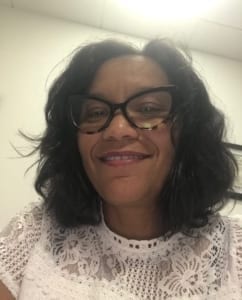 Dr. Pamela Hampton-Garland is an Assistant Professor of Adult Education at the University of the District of Columbia. For five years she has developed the UDC Adult Education graduate certificate and licensing program along with the Master of Arts in Adult Education program into Middle States accredited and state-accredited programs. As the only UDC faculty in the program, she, along with the program director, has transformed the program from its inaugural opening in the fall of 2014 to a state and nationally recognized pillar of andragogical reflective and experiential practice serving the citizens of the District of Columbia.
Dr. Pamela Hampton-Garland is an Assistant Professor of Adult Education at the University of the District of Columbia. For five years she has developed the UDC Adult Education graduate certificate and licensing program along with the Master of Arts in Adult Education program into Middle States accredited and state-accredited programs. As the only UDC faculty in the program, she, along with the program director, has transformed the program from its inaugural opening in the fall of 2014 to a state and nationally recognized pillar of andragogical reflective and experiential practice serving the citizens of the District of Columbia.
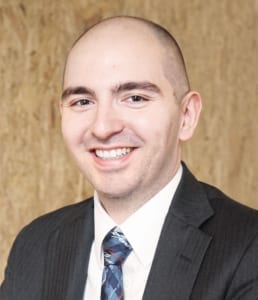 Joseph Jerome directs multistate policy advocacy for Common Sense Kids Action, where he works to advance legislative and policy solutions at the state level that support kids’ and families’ digital well-being. Joseph works at the intersection of law and technology, and has written about the privacy implications of big data, data portability policy, trust deficits in the online sharing economy, and emerging technologies in video games. Previously, he was part of the Privacy & Data Project at the Center for Democracy & Technology where he led efforts to advance state-based privacy and data security legislation. He was also an associate in the cybersecurity and privacy practice at WilmerHale and worked on a wide range of consumer privacy issues at the Future of Privacy Forum. He was a fellow with the Internet Law & Policy Foundry and has taught courses on cybersecurity and privacy compliance. Joseph has a J.D. from the New York University School of Law, where he was an International Law and Human Rights Student Fellow. He is a Certified Information Privacy Professional and painted his living room wall “cyberspace” black.
Joseph Jerome directs multistate policy advocacy for Common Sense Kids Action, where he works to advance legislative and policy solutions at the state level that support kids’ and families’ digital well-being. Joseph works at the intersection of law and technology, and has written about the privacy implications of big data, data portability policy, trust deficits in the online sharing economy, and emerging technologies in video games. Previously, he was part of the Privacy & Data Project at the Center for Democracy & Technology where he led efforts to advance state-based privacy and data security legislation. He was also an associate in the cybersecurity and privacy practice at WilmerHale and worked on a wide range of consumer privacy issues at the Future of Privacy Forum. He was a fellow with the Internet Law & Policy Foundry and has taught courses on cybersecurity and privacy compliance. Joseph has a J.D. from the New York University School of Law, where he was an International Law and Human Rights Student Fellow. He is a Certified Information Privacy Professional and painted his living room wall “cyberspace” black.
 Ross Lemke serves as the manager for the U.S. Department of Education’s Privacy Technical Assistance Center (PTAC) with 15 years of experience providing technical assistance around education data. He helps state and local education agencies, schools, districts, and postsecondary institutions develop an understanding of FERPA, privacy, and data security. Prior to his work with PTAC, Ross has provided TA around numerous U.S. Department of Education data collections including EDFacts, Civil Rights Data Collection, and the Individuals with Disabilities Education Act (IDEA). When he is not assisting schools with their critical student privacy issues, Ross likes to spend time with his family, not tell his kids’ school what he does for a living, and complain about getting stuck in airports.
Ross Lemke serves as the manager for the U.S. Department of Education’s Privacy Technical Assistance Center (PTAC) with 15 years of experience providing technical assistance around education data. He helps state and local education agencies, schools, districts, and postsecondary institutions develop an understanding of FERPA, privacy, and data security. Prior to his work with PTAC, Ross has provided TA around numerous U.S. Department of Education data collections including EDFacts, Civil Rights Data Collection, and the Individuals with Disabilities Education Act (IDEA). When he is not assisting schools with their critical student privacy issues, Ross likes to spend time with his family, not tell his kids’ school what he does for a living, and complain about getting stuck in airports.
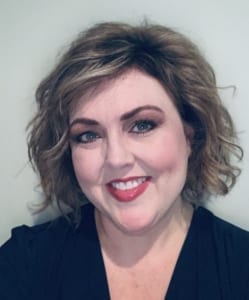 Kim Nesmith currently serves as the Data Governance, Privacy, and EdTech Director for the Louisiana Department of Education where she works cross-functionally throughout the Department to implement long-term strategies focused on coordinating and aligning data collection, storage, and use as well as ensuring the privacy of student and teacher data. While serving at the Louisiana Department of Education, Kim has established a data governance system that includes data access and management policies, privacy trainings, and data release processes. After establishing these policies and processes, Kim trained and provided resources for Louisiana’s school systems to do the same. Kim also oversees all data-sharing agreements, monitors releases of data, and provides guidance regarding compliance to the strictest student data privacy law in the nation. Working with multiple cross-agency teams, Kim represents the Department on the Statewide Data Governance Influence Group, the Governor’s subcabinet data sharing working group, and the legislative Technology Strategy Taskforce.
Kim Nesmith currently serves as the Data Governance, Privacy, and EdTech Director for the Louisiana Department of Education where she works cross-functionally throughout the Department to implement long-term strategies focused on coordinating and aligning data collection, storage, and use as well as ensuring the privacy of student and teacher data. While serving at the Louisiana Department of Education, Kim has established a data governance system that includes data access and management policies, privacy trainings, and data release processes. After establishing these policies and processes, Kim trained and provided resources for Louisiana’s school systems to do the same. Kim also oversees all data-sharing agreements, monitors releases of data, and provides guidance regarding compliance to the strictest student data privacy law in the nation. Working with multiple cross-agency teams, Kim represents the Department on the Statewide Data Governance Influence Group, the Governor’s subcabinet data sharing working group, and the legislative Technology Strategy Taskforce.
With a past service at the local school level, Kim brings eleven years of experience as a classroom teacher to her role in the Louisiana Department of Education. She taught technology courses such as multimedia, web mastering, and computer programming in a project-based learning environment, infusing the courses with as much core content as possible.
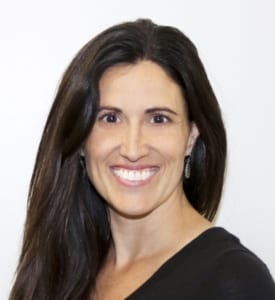 Dr. Whitney Phillips is the Chief Privacy Officer at the Utah State Board of Education and has a small, but excellent, team that has developed a number of data privacy resources. Whitney taught junior high English and English as a second language before pursuing her doctorate in Educational Inquiry, Measurement, and Evaluation. Whitney has worked as a project manager for federal and Utah state accountability and was a program evaluator at the Arizona Department of Education.
Dr. Whitney Phillips is the Chief Privacy Officer at the Utah State Board of Education and has a small, but excellent, team that has developed a number of data privacy resources. Whitney taught junior high English and English as a second language before pursuing her doctorate in Educational Inquiry, Measurement, and Evaluation. Whitney has worked as a project manager for federal and Utah state accountability and was a program evaluator at the Arizona Department of Education.
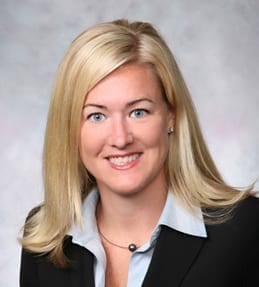 Gretchen Shipley is the chair of the education technology practice group, eMatters, at the law firm of Fagen, Friedman & Fulfrost LLP. In this role, she advises over 500 school districts and education software companies across the United States on student data privacy law, responsible use of technology and cybersecurity, and school safety. She is regularly asked to draft policies, evaluate contracts and conduct trainings to support education technology in the school community.
Gretchen Shipley is the chair of the education technology practice group, eMatters, at the law firm of Fagen, Friedman & Fulfrost LLP. In this role, she advises over 500 school districts and education software companies across the United States on student data privacy law, responsible use of technology and cybersecurity, and school safety. She is regularly asked to draft policies, evaluate contracts and conduct trainings to support education technology in the school community.
 Jim Siegl is a Technology Architect specializing in the evaluation and design of enterprise-wide solutions that can scale to meet the needs of the 189,000 students at Fairfax County Public Schools (VA). Mr. Siegl’s current focus is in the areas of privacy, security, cloud computing, identity management, and learning management systems. Mr. Siegl was the co-chair of the CoSN Privacy toolkit initiative and has contributed to working groups, panels and white papers on privacy, cloud computing, security and mobile app development for CoSN, Future of Privacy Forum, Common Sense Media, NSBA and is an IAPP Certified Information Privacy Technologist (CIPT). The opinions expressed at this event are Mr. Siegl’s own and do not reflect the views of the Fairfax County Public Schools system.
Jim Siegl is a Technology Architect specializing in the evaluation and design of enterprise-wide solutions that can scale to meet the needs of the 189,000 students at Fairfax County Public Schools (VA). Mr. Siegl’s current focus is in the areas of privacy, security, cloud computing, identity management, and learning management systems. Mr. Siegl was the co-chair of the CoSN Privacy toolkit initiative and has contributed to working groups, panels and white papers on privacy, cloud computing, security and mobile app development for CoSN, Future of Privacy Forum, Common Sense Media, NSBA and is an IAPP Certified Information Privacy Technologist (CIPT). The opinions expressed at this event are Mr. Siegl’s own and do not reflect the views of the Fairfax County Public Schools system.
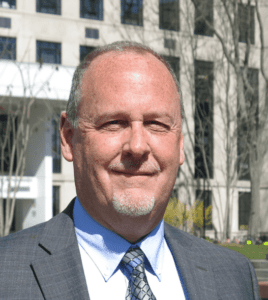 Steve Smith has twenty three+ years of CIO/CTO experience in rural and urban, large and small, school districts in New England, the last twelve years as CIO of Cambridge Public Schools. Recently Mr. Smith has spent a great deal of time navigating student privacy issues. He has represented both Maine and currently Massachusetts on the National Forum on Education Statistics and has contributed to the Forum’s Education Data Privacy, Civil Rights Data Reporting, Longitudinal Data Systems, SCED Working Group, Virtual Education, Facilities Data Management, Technology Suite, Crisis Data Management, Cyber Security and Metadata working groups. In addition, Mr. Smith is a contributing member to the CoSN Trusted Learning Environment project as well as the Founder of the Student Data Privacy Consortium.
Steve Smith has twenty three+ years of CIO/CTO experience in rural and urban, large and small, school districts in New England, the last twelve years as CIO of Cambridge Public Schools. Recently Mr. Smith has spent a great deal of time navigating student privacy issues. He has represented both Maine and currently Massachusetts on the National Forum on Education Statistics and has contributed to the Forum’s Education Data Privacy, Civil Rights Data Reporting, Longitudinal Data Systems, SCED Working Group, Virtual Education, Facilities Data Management, Technology Suite, Crisis Data Management, Cyber Security and Metadata working groups. In addition, Mr. Smith is a contributing member to the CoSN Trusted Learning Environment project as well as the Founder of the Student Data Privacy Consortium.
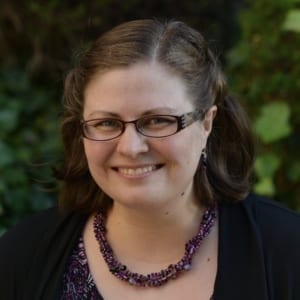 Amelia Vance is the Director of Youth & Education Privacy at the Future of Privacy Forum. She advises stakeholders on student privacy law and best practices; oversees the Education Privacy Resource Center website, the creation and curation of training resources, and the review of applicants to the Student Privacy Pledge; and convenes stakeholders to ensure the responsible use of student data and ed tech. Amelia is a regular speaker at conferences in the U.S. and abroad, has testified before Congress, and presented before the Federal Trade Commission. She is a member of IAPP and the Virginia State Bar.
Amelia Vance is the Director of Youth & Education Privacy at the Future of Privacy Forum. She advises stakeholders on student privacy law and best practices; oversees the Education Privacy Resource Center website, the creation and curation of training resources, and the review of applicants to the Student Privacy Pledge; and convenes stakeholders to ensure the responsible use of student data and ed tech. Amelia is a regular speaker at conferences in the U.S. and abroad, has testified before Congress, and presented before the Federal Trade Commission. She is a member of IAPP and the Virginia State Bar.
What to Bring
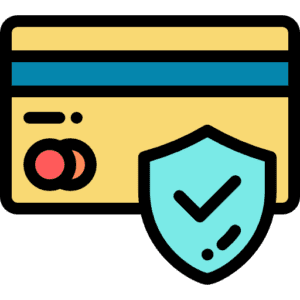
For hotel check-in, you will need to provide a photo ID and credit card (for incidentals).

Please bring a device (laptop or tablet) to fully engage during workshop activities.

Attire for the workshop is business casual. Be sure to bring a jacket, sweater, or dress in layered clothing, as temperatures may fluctuate within the meeting room.

Temperatures in Washington D.C. for mid-February average between a high of 47° F and a low of 27° F.
Transportation
Venue & Accommodations
Resources
The following resources will be helpful as we explore student data privacy. Please take a moment to review these documents prior to the face-to-face training in February.
Local Attractions
- Arlington National Cemetery (3.3 miles from hotel)
- White House (4.5 miles from hotel)
- U.S. Capitol Building (5 miles from hotel)
- Washington DC Monuments on the Mall (3.5 miles from hotel)
- Smithsonian Institute (3.5 miles from hotel)
- The Kennedy Center for the Performing Arts (3 miles from hotel)
- Old Town Alexandria (4 miles from hotel)
- National Zoo (6.1 miles from hotel)


